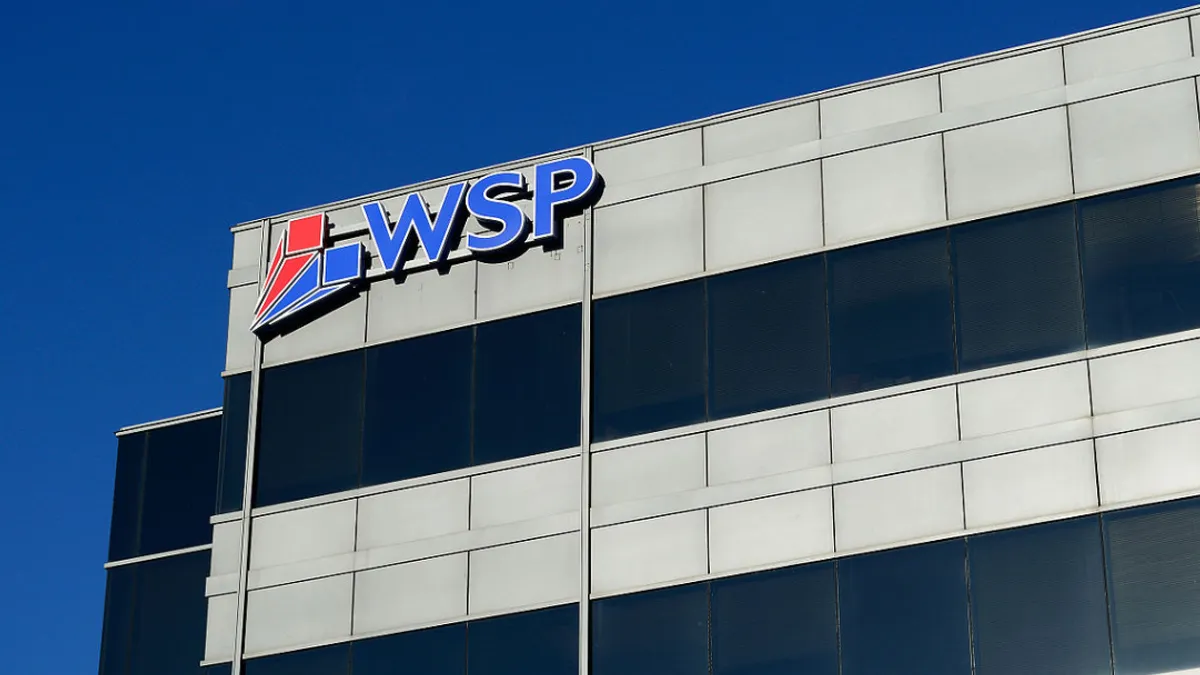Canadian contractor WSP Global reported this morning fourth quarter 2019 net revenues in its Americas division of $559.2 million Canadian dollars (U.S. $418.7 million), an increase of CA$105 million, or 23% compared to the same period in 2018. Backlog for the Americas segment grew 6.4% organically when compared to results from 2018, attributable mainly to U.S. operations.
Americas division net revenues for the quarter and the year were below expectations, partly due to lower-than-anticipated net revenues in the Northeast region of the U.S., particularly in New York, according to president and CEO Alexandre L'Heureux.
The company’s net revenue by division for the full-fiscal year 2019 in the Americas breaks down as follows:
- Transportation and infrastructure: 65%.
- Property and buildings: 15%.
- Environment: 12%.
- Resources: 4%.
- Power and energy: 3%.
- Industrial: 1%.
The Montreal-based firm had an extremely acquisitive year, closing deals with eight companies in a variety of locations including the U.S. and Australia totaling $300 million in acquired revenue and 1,800 employees. All were financed using cash on hand and credit facilities, L'Heureux said.
Company leaders said they would not comment on “market speculation” about potential upcoming deals, likely referencing the rumors that WSP is in talks with contracting giant AECOM. “There is a good pipeline of potential acquisitions around the world that would help us meet or exceed our ambitions," L'Heureux said. “We’re going to work extremely hard to achieve that."
Last month, Bloomberg reported that WSP had approached the Los Angeles-based construction and engineering giant about a possible deal. While neither company has commented on the report, a deal could help the two firms — which both operate across hundreds of local offices mainly concentrated in North America — save on costs, consolidate real estate and streamline procurement and system investments, according to Andrew Wittmann, a senior research analyst with Baird Equity Research's Industrial Services division.
The company foresees growing its employee base by about 30% through 2021, but L'Heureux said it’s impossible to predict in the context of a strategic plan when large, “transformational” acquisitions will take place.
“It’s very, very hard to time the large-size acquisitions,” he said. He also indicated that the company would consider leveraging itself more than it has in the past for a large acquisition in the next few years.
“For the right acquisition, would we be willing to go above that? The answer is yes," he said, adding that the company would probably not look to a share buyback to help finance a large deal.
WSP executives will continue to be choosy about which companies they target, he said, and will take many factors into consideration including markets and sectors served and whether they can make WSP more resilient and diversified.
“We don’t have a gun to our head on acquisitions,” L'Heureux said. “We’re only going to do them if they make sense for the company, if they are timely … and if they stay well within the strategy we have put together for the next three years.”
Past deals
WSP's acquisitions of U.S.-based construction and engineering firms go back several years. In 2018, WSP bought Berger Group Holdings Inc., parent of the group of companies operating under the umbrella name of Louis Berger, a Morristown, N.J.-based international professional services firm, for $400 million. And in 2014, it acquired New York City-based Parsons Brinckerhoff for about $1.4 billion.
In December WSP closed an acquisition of Lancaster, N.Y.-based environmental consulting firm Ecology and Environment Inc., a 775-employee, publicly traded company that works with governments and private customers worldwide, including the EPA and U.S. Army Corps of Engineers.
WSP employs approximately 50,000, including approximately 10,500 in the United States. Among its large U.S. projects, the Montreal-based company is providing engineering support to Texas Central, developers of a high-speed 240-mile rail line that will connect North Texas and Houston and it is also part of LaGuardia Gateway Partners, the team designing and building the $3.6 billion Central Terminal B at LaGuardia Airport.
















